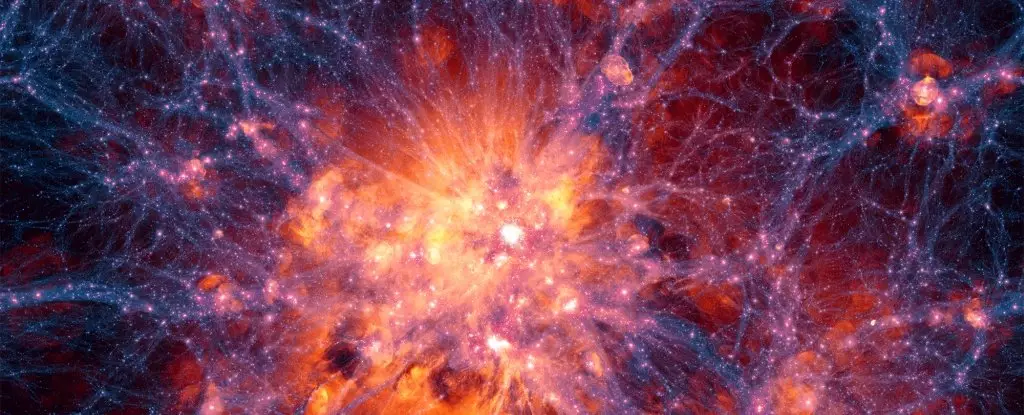Dark matter serves as one of the most perplexing enigmas in contemporary astrophysics. While it constitutes a significant portion of the universe’s mass, its exact nature remains elusive. Despite extensive research, the fundamental question—what dark matter is—persists. Dark matter does not interact with electromagnetic forces, which means it does not emit, absorb, or reflect light, making it invisible to conventional detection methods. Observations reveal a notable disparity between the gravitational effects we observe, such as the rapid rotation of galaxies and the total visible mass of celestial bodies. According to physicists, dark matter likely outweighs regular matter by approximately sixfold. The search for dark matter is not just curiosity-driven; understanding it is crucial for a comprehensive model of the universe.
Recently, physicists at the University of Southampton are preparing to embark on a distinctive experiment targeting this elusive substance. Their endeavor involves levitating sheets of graphite in microgravity, creating conditions that might capture subtle forces exerted by dark matter. The lead researcher, Tim Fuchs, emphasizes the groundbreaking nature of their approach, as it endeavors to directly measure potential interactions with dark matter. By leveraging a satellite platform called Jovian-1, set to embark on its mission in early 2026, this experiment promises unprecedented insights into the dark matter mystery.
Levitating graphite allows researchers to isolate the experimental conditions crucial for measuring tiny forces without interference from Earth’s gravitational pull. In microgravity, the sensitivity of the apparatus increases significantly, enabling it to detect faint interactions that could elude terrestrial detectors. “If there is a sufficiently high density of dark matter, a dark ‘wind’ will softly push our levitated particles by an amount we can measure,” Fuchs explains. This innovative methodology could pave the way for the first direct detection of dark matter.
The implications of uncovering the secrets of dark matter extend far beyond theoretical physics—they touch upon our fundamental understanding of the universe itself. As scientists attempt to bridge the gap between observable phenomena and hidden cosmological forces, they delve into realms of understanding that challenge conventional wisdom. The potential to validate or refute theories about dark matter interactions could effectively reshape our understanding of cosmic structure.
Moreover, the findings from the Jovian-1 mission could illuminate why earlier terrestrial detectors have had limited success. Fuchs suggests that positing dark matter interactions might be so robust that they fail to penetrate the atmosphere or geological layers beneath, potentially explaining the absence of conclusive signals from Earth-bound experiments. By exploring these premises, the ongoing research illuminates the importance of novel experimental environments in unlocking scientific puzzles that have persisted for decades.
The project exemplifies an impressive collaboration among various institutions, involving students and researchers from the University of Southampton, the University of Portsmouth, and Surrey University. The Jovian-1 satellite will host not just one, but multiple experiments, showcasing how interdisciplinary efforts can synergize to tackle complex scientific questions. This collaborative spirit not only enriches the research experience for students but also bodes well for the future of space exploration and experimentation.
While the wait until the experiment’s deployment and data collection might seem prolonged, the anticipation is equally exciting. The outcomes could bring about a paradigm shift in how we understand dark matter, redefine astronomical models, and challenge existing theories on the universe’s composition. Even in the absence of direct detection, the experiment may yield invaluable insights that broaden our scientific horizons.
As researchers gear up for this important mission, their efforts underscore an enduring truth in science: the pursuit of knowledge is relentless. The quest for understanding dark matter, though fraught with challenges, exemplifies the tenacity of scientific inquiry. The findings from the Jovian-1 mission are destined to contribute significantly to ongoing discussions in cosmology and beyond, illuminating the path for future investigations into the mysteries of the universe. Whether or not dark matter is ultimately detected, the journey itself promises profound implications for scientific understanding and human curiosity.

